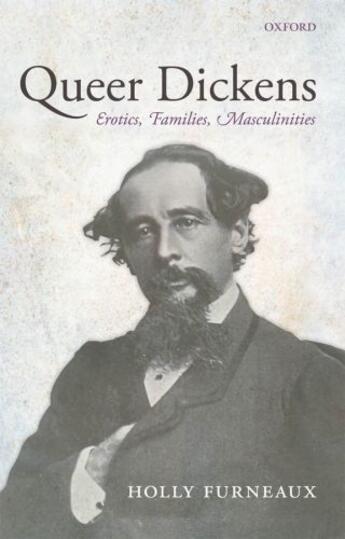Résumé:
This book offers a radically new reading of Dickens and his major works. It demonstrates that, rather than representing a largely conventional, conservative view of sexuality and gender, he presents a distinctly queer corpus, everywhere fascinated by the diversity of gender roles, the... Voir plus
This book offers a radically new reading of Dickens and his major works. It demonstrates that, rather than representing a largely conventional, conservative view of sexuality and gender, he presents a distinctly queer corpus, everywhere fascinated by the diversity of gender roles, the expandability of notions of the family, and the complex multiplicity of sexual desire. The book examines the long overlooked figures of bachelor fathers, maritally resistant men, and male nurses. It explores Dickens's attention to a longing, not to reproduce, but to nurture, his interest in healing touch, and his articulation, over the course of his career, of homoerotic desire.
Holly Furneaux places Dickens's writing in a broad literary and social context, alongside authors including Bulwer-Lytton, Tennyson, Braddon, Collins, and Whitman, to make a case for Dickens's central position in queer literary history. Examining novels, poetry, life-writing, journalism, and legal and political debates, Queer Dickens argues that this eminent Victorian can direct us to the ways in which his culture could, and did, comfortably accommodate homoeroticism and families of choice. Further, it contends that Dickens's portrayals of nurturing masculinity and his concern with touch and affect between men challenge what we have been used to thinking about Victorian ideals of maleness.
Queer Dickens intervenes in current debates about the Victorians (neither so punitive nor so prudish as we once imagined) and about the methodologies of the histories of the family and of sexuality. It makes the case for a more optimistic, nurturing, and life-affirming trajectory in queer theory.














